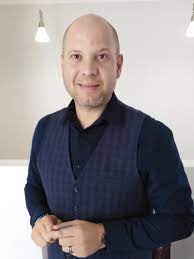
World Health Organisation helps to reduce maternal and child mortality in poorest communities

The Ministry of Health and Social Services received equipment and assets at the closing of the Program for Accelerating the Reduction of Maternal and Child Mortality (PARMaCM) from the World Health Organization (WHO) on 17 December 2018.
Hon Dr Bernard Haufiku, the Minister of Health and Social Services accepted a Toyota Land Cruiser, four laptop computers, one screen and four PCs worth a total value of N$577 534. He said that the end-of-project evaluation showed it has been effective in increasing the access to Emergency Obstetric and Newborn Care services as witnessed by the increase of attendance in the Comprehensive Obstetric and Newborn Care target facilities.
“PARMaCM has contributed to providing evidence on the improvements needed to offer quality adolescent-friendly health services, strengthen the immunization programme and strengthen capacity to manage sick and malnourished children in health facilities,” he continued.
He said despite these achievements there is a lot that remains to be done as the second assessment of Emergency Obstetric and Neonatal Care in all public hospitals, health centres and some selected clinics drew their attention to some unresolved issues in the health agenda.
Dr Sagoe-Moses, the local representative for the World Health Organization said they are pleased to transfer the assets because PARMaCM is focused on improving emergency obstetric care by addressing the delays resulting in maternal and newborn deaths. “The programme was directed to the rural and poorest population who have both the highest Maternal and Child morality rates and the least access to quality services,” added Dr Sagoe-Moses.
PARMaCM is driven through a partnership between the Ministry of Health and Social Services, the European Union and the World Health Organization with a total budget of Eur 10 million.













































